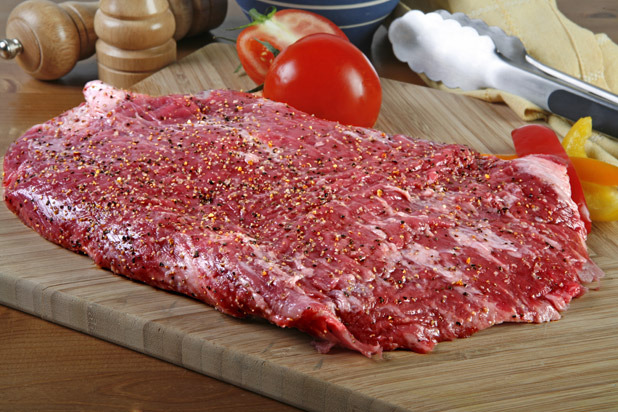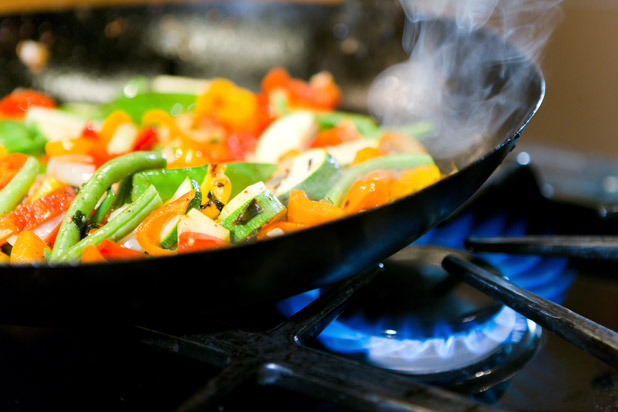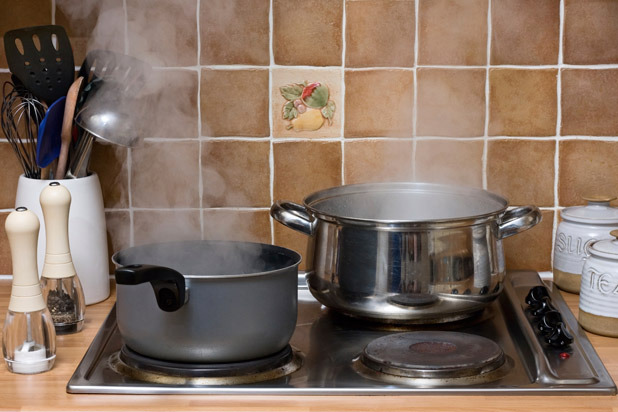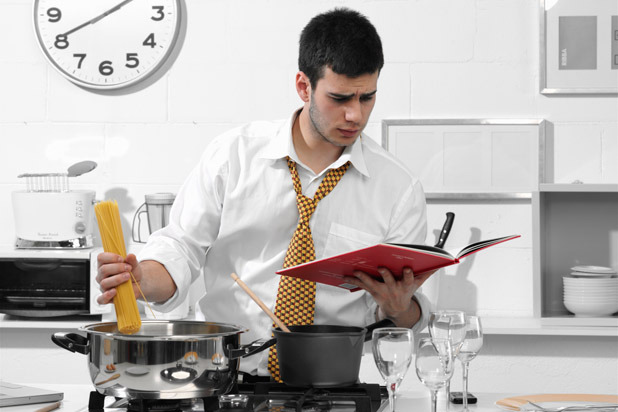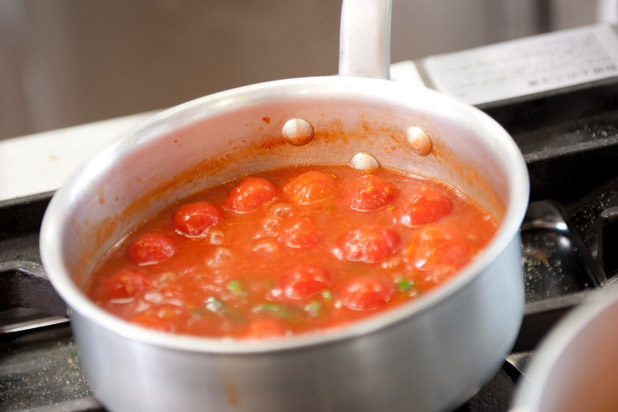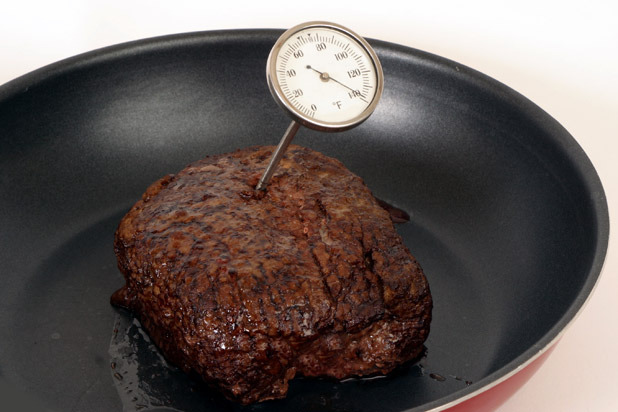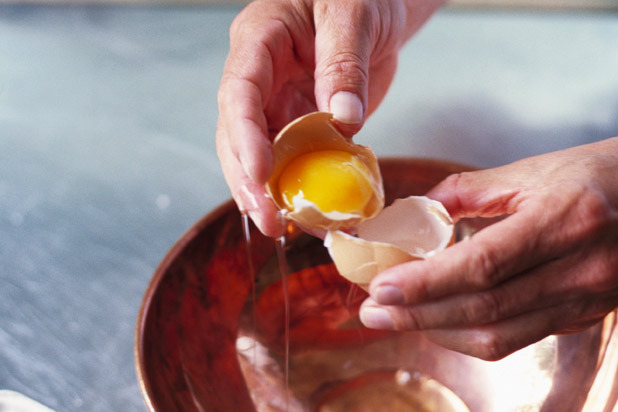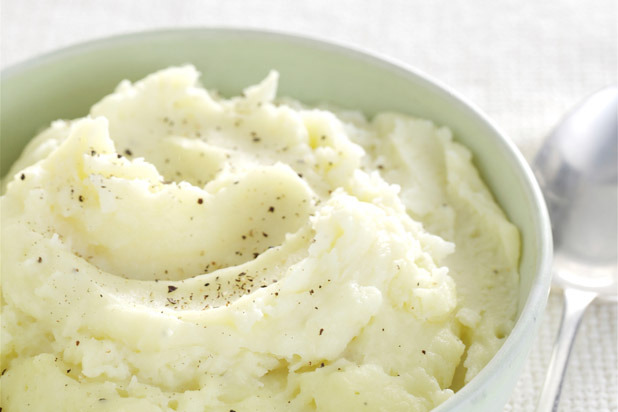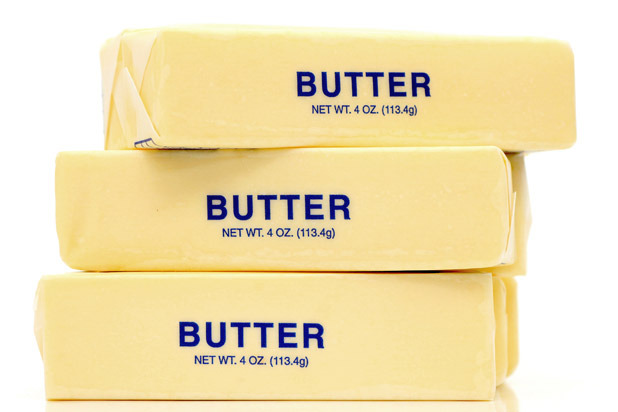11 Common Mistakes That You May Be Making In The Kitchen
"Allowing your meat to rest for that much-needed cooling-off time allows the juices to be distributed more evenly and not run out onto the cutting board [like they would] if you were to cut into it immediately," says Monroe-Williams. "Let steaks and chicken rest for at least five minutes, and whole roasts and birds could rest 20 to 30 minutes. Cover meat with foil while it's resting."
Not Tasting Your Food as You Go
"This is a huge no-no," says Monroe-Williams. No matter what trusted recipe you're trying, and especially if you're not following a recipe at all, you must taste the recipe as you go to know how the flavors are developing. It's crucial to getting a balance of flavors; just make sure you use tasting spoons so that you don't double dip.
Not Seasoning Your Meat and Poultry Immediately Before Cooking
For a nice sear and flavorful meat, season your protein immediately before cooking. "Seasoning too early will draw [all of the] moisture to the surface and it will be hard[er] to get [a] great sear, and seasoning after cooking is just plain [wrong]," says Monroe-Williams.
Overcrowding the Pan
When you overload a pan with too many things, the temperature lowers and your food will not be seared properly. If you're in a bind and need to cook a lot at once, use two pans, says Monroe-Williams.
Not Seasoning the Pasta Water
You may think all of the seasoning is in the sauce, but by seasoning your pasta water with an ample amount of salt, you're adding a ton of flavor to your pasta. To skip this step would be a tragedy in the name of all things pasta.
Not Reading a Recipe All the Way Through Before Getting Started
"Just like driving, you need to know where you're going before you start," says Monroe-Williams. "You'll miss a turn or two if you don't read the entire recipe through, and then who knows where you'll end up. Have a clear-cut plan in the kitchen so you avoid any blunders [or wrong turns]."
Boiling When You’re Supposed to Be Simmering
"I am as impatient as it gets in the kitchen when I am in a hurry, but rushing some things could cost you a trip to the store [because you'll have to start over]. If something should simmer for 45 minutes, it's not going to cook the same if you turn up the heat and try to speed things up by boiling for 15 minutes," says Monroe-Williams. Simmering allows flavors to develop, and by boiling instead, your results could be dry, tough, or flavorless.
Not Using a Meat Thermometer
Cooking protein is often a balancing act trying to get that juicy meat without over- or undercooking it. Meat thermometers help you avoid these blunders, says Monroe-Williams.
Mishandling Egg Whites
Egg whites play a special role in a recipe, and not handling them correctly can cause your dish to flop and lack that lift that egg whites give. Always let your eggs come to room temperature before separating. If the recipe says to beat them until stiff peaks form, make sure to stop there, because over-beating will result in dry egg whites.
Over-Mashing Potatoes
"No one likes glue instead of potatoes," says Monroe-Williams, and over-mashing your tots will give you just that. The more you work your potatoes, the more starch is released and creates a gluttonous mess. For best results, use a potato ricer to crumble the potatoes, and mix in your fats only to the point of perfect consistency.
Using Butter That's Too Soft
A lot of baking recipes call for softened butter, but letting your butter soften too much will cause a huge mess. "Overly softened butter makes your baked goods spread out into all kinds of strange, unwanted shapes," says Monroe-Williams. "When a recipe calls for softened butter, it doesn't mean nearly melted butter. It should still hold its form and push back a little bit when pushed with a finger. If you're in a hurry, don't use the microwave; just cut the butter into chunks and let it sit on the cutting board or countertop until just right."


